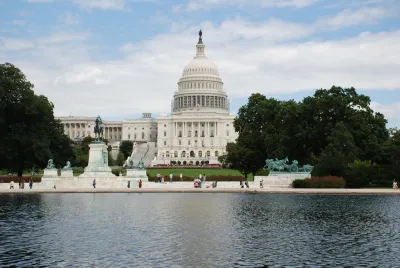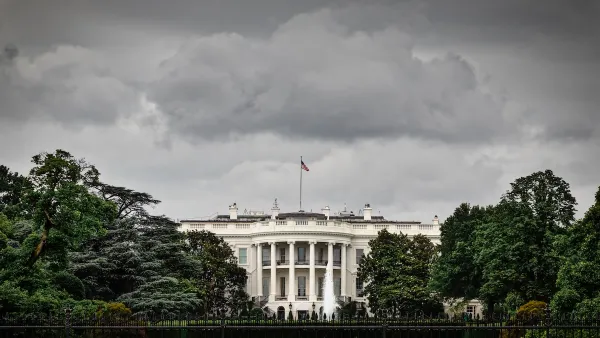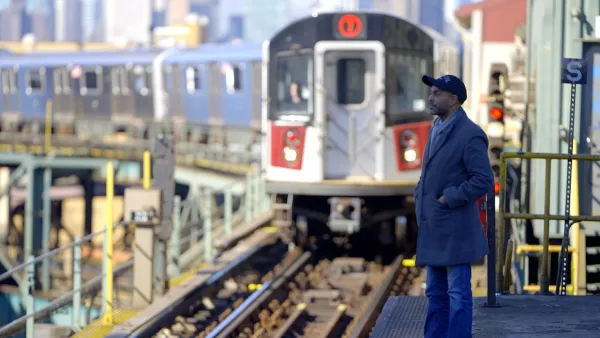Taking cues from the Trump Administration's recently-released infrastructure plan, the government intends to use a public-private partnership model to take on social challenges.

The Trump Administration's infrastructure plan relies, controversially, on states and localities to foot much of the bill for repairs and improvements. As Kriston Capps reports, the government's social impact program embraces a similar model.
Often touted by the Trump Administration, public-private partnerships serve as the basis for these social impact partnerships. Capps writes, "The new law imagines federally fueled, locally driven, public-private partnerships that cut costs for the government. The social goals are practical, from reducing the number of kids in foster care to reducing the number of low-income families receiving means-tested benefits." A new Federal Interagency Council on Social Impact Partnerships will be the gatekeeper here.
"In a typical P3, private investors may finance, build, operate, and maintain an infrastructure project, like a building or a bridge. Social impact bonds instead put that private capital toward a social program, with the government paying returns if certain outcomes are met."
These methods aren't entirely rooted in Trump-era policy. Similar bipartisan proposals have come up, including from the Obama administration. "The result could be a new market for best practices in local government—although it may mean more private companies and faith-based organizations getting involved in basic social services."
FULL STORY: A Brief Guide to 'Social Impact Partnerships'

Analysis: Cybertruck Fatality Rate Far Exceeds That of Ford Pinto
The Tesla Cybertruck was recalled seven times last year.

National Parks Layoffs Will Cause Communities to Lose Billions
Thousands of essential park workers were laid off this week, just before the busy spring break season.

Retro-silient?: America’s First “Eco-burb,” The Woodlands Turns 50
A master-planned community north of Houston offers lessons on green infrastructure and resilient design, but falls short of its founder’s lofty affordability and walkability goals.

Test News Post 1
This is a summary

Analysis: Cybertruck Fatality Rate Far Exceeds That of Ford Pinto
The Tesla Cybertruck was recalled seven times last year.

Test News Headline 46
Test for the image on the front page.
Urban Design for Planners 1: Software Tools
This six-course series explores essential urban design concepts using open source software and equips planners with the tools they need to participate fully in the urban design process.
Planning for Universal Design
Learn the tools for implementing Universal Design in planning regulations.
EMC Planning Group, Inc.
Planetizen
Planetizen
Mpact (formerly Rail~Volution)
Great Falls Development Authority, Inc.
HUDs Office of Policy Development and Research
NYU Wagner Graduate School of Public Service




























